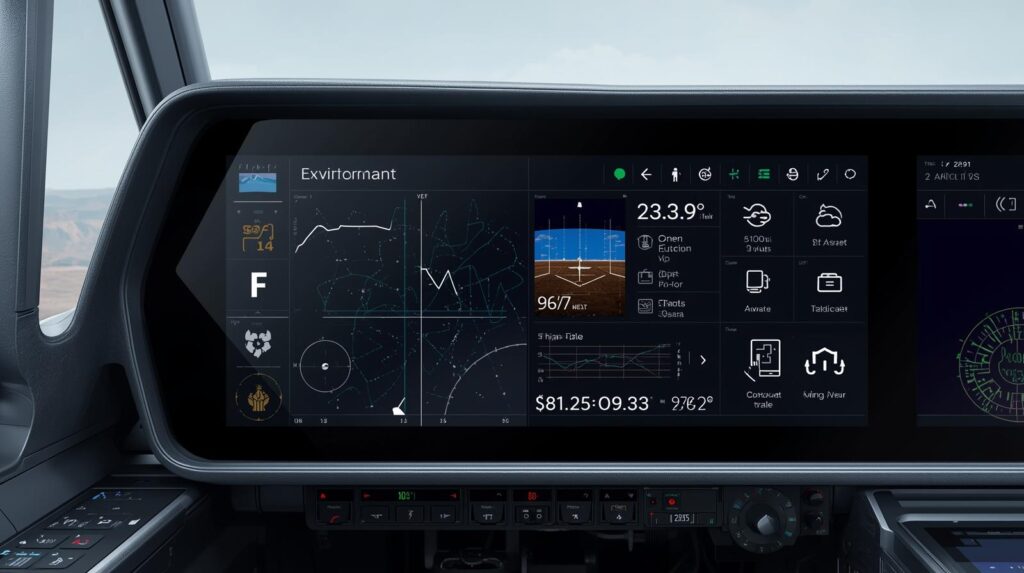The Cabin Management System (CMS) market is entering a transformative phase as airlines, business jet operators, and aircraft OEMs shift toward highly digital, intelligent, and immersive cabin environments. From LED mood lighting to advanced connectivity, predictive maintenance, and seamless cabin control interfaces, CMS technologies are rapidly evolving into the central nervous system of modern aircraft interiors. As passenger expectations rise and aviation stakeholders seek differentiation, CMS solutions are emerging as a strategic investment area across commercial, regional, and VIP aircraft segments.

One of the most influential trends shaping the CMS market is the industry’s transition toward hyper-personalized passenger experience. Travelers increasingly expect the same level of customization and digital convenience in the air as they enjoy on the ground. This has led manufacturers to integrate features such as individualized lighting presets, wireless device control, streaming entertainment, and real-time cabin environment adjustments. With premium cabins and business jets demanding luxury-grade features, CMS providers are focusing on intuitive interfaces, multi-screen synchronization, and touchless technology to deliver a more immersive experience.
Download PDF Brochure @ https://www.marketsandmarkets.com/pdfdownloadNew.asp?id=118742255
The push toward connected aviation ecosystems is further accelerating market expansion. As in-flight Wi-Fi, satellite communication, and IoT-based cabin sensors become standard, CMS platforms are evolving into interconnected hubs that unify cabin data, crew tools, entertainment systems, and passenger interfaces. Airlines benefit from shortened turnaround times, improved service delivery, and enhanced cabin efficiency, while operators in the business aviation segment gain competitive differentiation through digitally enhanced luxury experiences. This integration of CMS with connectivity platforms is redefining how aircraft interiors operate—making cabins smarter, more interactive, and more responsive to user needs.
Another factor driving robust market growth is the increasing adoption of predictive maintenance and real-time monitoring technologies. Modern CMS architectures now integrate health monitoring tools that detect system anomalies, track device performance, and provide alerts to maintenance teams. By reducing unplanned downtime and ensuring system reliability, predictive intelligence is becoming a crucial value-add for both commercial airlines and private aircraft operators. With growing pressure to maintain higher aircraft utilization rates, CMS-driven operational enhancements are gaining strategic significance.
The rise of lightweight, modular CMS solutions is also reshaping OEM strategies. To reduce fuel consumption and support sustainability initiatives, CMS vendors are designing more compact, energy-efficient hardware with simplified wiring and advanced thermal management. These modular systems not only reduce aircraft weight but also offer easier installation, customization, and future upgrades. For operators conducting cabin retrofits—an increasingly common trend—these modular architectures provide a cost-effective way to modernize older fleets and extend aircraft lifecycle value.
The business aviation sector remains one of the strongest growth engines for the CMS market. Owners and operators of VIP aircraft seek highly luxurious, customizable, and digitally advanced cabin environments. CMS vendors are responding with premium features such as multi-zone environmental control, 4K UHD entertainment systems, biometric access panels, integrated smart glass, and immersive audio optimization. With rising global demand for private and charter services, the business jet segment will continue to act as a catalyst for high-end CMS innovation.
Sustainability is another significant driver influencing CMS adoption. Airlines are actively investing in greener technologies, and CMS plays an important role in achieving energy efficiency within the cabin. Intelligent lighting control, optimized power distribution, and real-time energy consumption tracking are enabling operators to reduce operational costs and lower emissions. As regulatory frameworks around aviation sustainability become more stringent, cabin systems with smart energy features will hold substantial market value.
The retrofit market is rapidly expanding as airlines modernize aging fleets to improve passenger experience without the high cost of purchasing new aircraft. Cabin upgrades involving LED lighting, touchless systems, modern IFEC, and wireless cabin controls are becoming increasingly common. CMS providers offering scalable and plug-and-play solutions are gaining a competitive advantage, as operators seek rapid integration with minimal aircraft downtime.
On the technology front, AI and voice-enabled cabin interfaces are gaining momentum. Smart assistants capable of adjusting lighting, temperature, seating positions, and entertainment preferences are beginning to redefine cabin interaction models. These intelligent features not only enhance comfort but also support accessibility for passengers with reduced mobility—an emerging priority in inclusive aviation design.
Regional expansion is also contributing to strong market growth. North America and Europe lead in adoption due to strong OEM presence and high business jet usage, but Asia-Pacific is rapidly emerging as a high-growth region. Increasing air travel demand, expanding premium cabin offerings, and rising investments from regional airlines are driving CMS installations across new aircraft procurements and retrofit programs. Additionally, the growing number of high-net-worth individuals in APAC is fueling demand for premium CMS-equipped luxury jets.
Looking ahead, the Cabin Management System market is positioned for sustained double-digit growth as digitalization reshapes the aviation industry. The convergence of smart cabin technologies, passenger-centric design, and connected aviation ecosystems will redefine aircraft interiors for the next generation. From luxury business jets to long-haul commercial aircraft, CMS will play a central role in delivering enhanced comfort, operational efficiency, and intelligent cabin control.